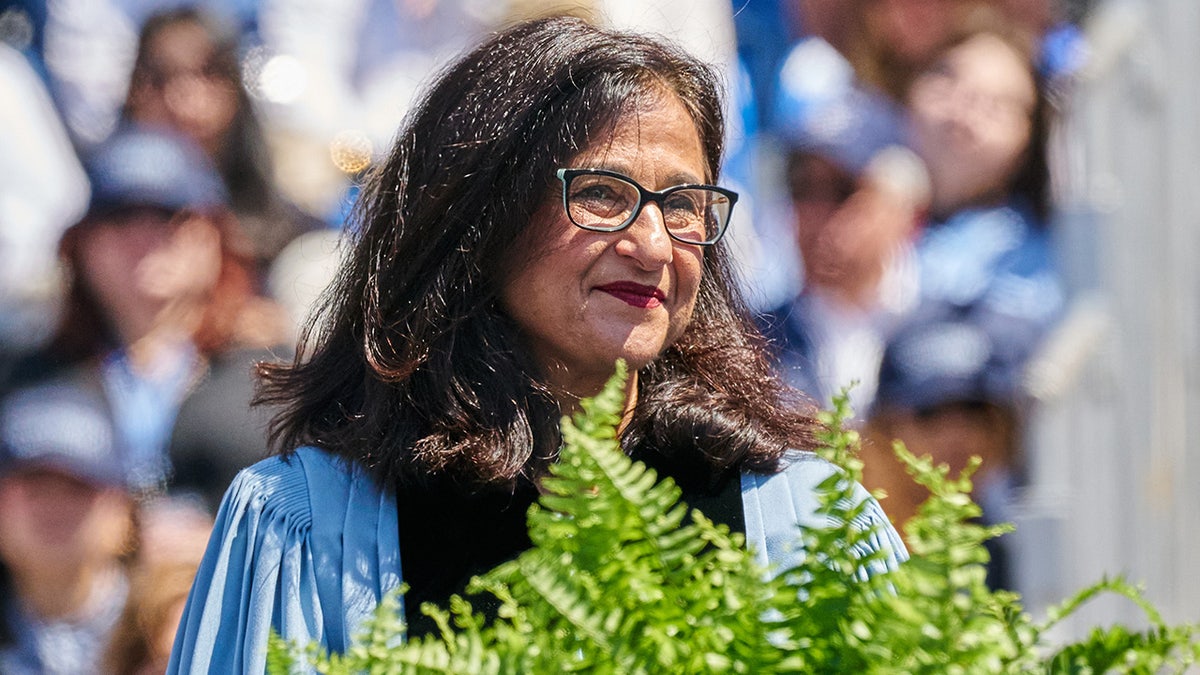‘Traumatized’ Jewish students suing NY college over antisemitism claims
The Lawfare Project’s Brooke Goldstein elaborates on a lawsuit against The Cooper Union by several Jewish students over alleged antisemitism on campus.
On Wednesday, April 17, Columbia University’s president and board of chairs testify at a long-overdue congressional hearing on campus antisemitism. Minouche Shafik, Columbia’s president, had been invited to the calamitous hearing last December alongside the presidents of Harvard, MIT and the University of Pennsylvania, but she, rather fortuitously, had a scheduling conflict.
Jewish students cannot afford any further delays. A week on from the Anti-Defamation League assigning Columbia a "D" rating in its "Campus Antisemitic Report Card," Shafik will have a rapt audience when she explains to a bipartisan group of policymakers how the university is protecting Jewish students who have, since October 7, been spat on, beaten, cursed and intimidated with swastika vandalism.
And this weekend’s direct attacks by Iran on Israel are no doubt going to exacerbate, rather than dissipate, tensions on campus.
Antisemitism may very well be "antithetical" to Columbia’s core values, as its spokesperson recently stated, but it’s an ugly reality that can’t be swept under the carpet or nullified by solidarity statements followed by minimal action.

Minouche Shafik, the president of Columbia University, is testifying in front of Congress on the issue of campus antisemitism as colleges around the US are facing a rising tide of anti-Jewish sentiment. (Bing Guan/Bloomberg via Getty Images)
December’s congressional testimony dominated news headlines and television bulletins for all the wrong reasons. It was reported to be the most watched congressional testimony in history, clocking more than 1 billion views. But having a massive audience tuning in will not be enough. Neither will lodging perfectly timed ‘gotcha’ questions.
Jewish students want safety, not virality. Simply excoriating college administrators for failing to tackle rampant Jew-hatred on campus won’t be sufficient either. Students and alumni like us demand answers, in concrete, measurable ways, of how one of the country’s most elite institutions is going to be keeping Jews safe.
New York City, home to the largest Jewish population of any city in the entire world, has felt eerily tense for some Jews, whether on campus grounds or on the streets, and the city's most prestigious and only Ivy League school must answer questions that have gone unanswered for far too long. Questions that don’t warrant asinine, context-dependent answers. We hope that Shafik is asked about — and answers responsibly — questions like the ones we’ve canvassed below:
Do calls for the genocide of Jewish people constitute a violation of the school’s policies?
If so, what protocols are in place for when those policies are violated?
How has, or will, Columbia protect the right to free speech in protests while also ensuring that those protests don’t descend into cases of targeted harassment, intimidation and violence?
What is Columbia doing to curb the spread of antisemitism on campus?
What is Columbia doing to protect Jewish students too afraid to proudly display their Judaism when on campus?
The disastrous December hearing showed that uproar doesn’t necessarily lead to sustained action. Asked whether the calls for genocide against Jews would violate school policy, then-Harvard President Claudine Gay argued that such proclamations would be a context-dependent decision.
Her answer affirmed what Jewish students across American college campuses had been arguing for years: that while universities went to great lengths to coddle and protect all conceivable minority groups through DEI initiatives, affinity celebrations and safe spaces, the Jewish people have never been afforded such amenities.
Gay’s unvarnished admission, and the subsequent criticism, however, did little to stem the rising hate targeting Harvard’s Jewish students.
Of course, Gay’s departure from Harvard’s top post didn’t spell an end to deep-seated antisemitism on campus. And blindly calling for the dismissal of President Shafik won’t magically expunge antisemitism at Columbia.
In fact, even after Gay’s resignation, ostensibly over accusations of plagiarism rather than antisemitism, incidents of antisemitism have largely increased. It’s largely why Jewish students sued Harvard University after Gay’s departure for failing to adequately address the campus antisemitism that skyrocketed after the Hamas terror attacks on October 7.
CLICK HERE FOR MORE FOX NEWS OPINION
Harvard students flocked to the third-party social media app SideChat to lament the "too many damn Jews in this country" who "control the media." Polls were conducted asking if Zionists were either baby killers or pedophiles. The winning answer? Both.
The Harvard Staff and Faculty for Justice in Palestine, an unrecognized Harvard club, posted a horrifically antisemitic cartoon, replete with a capitalist Star of David hanging black men by the noose, to no disciplinary action.
Hostage posters bringing awareness to the plight of kidnapped Jewish civilians were vandalized with accusations that Jews orchestrated the 9/11 terror attacks. Kfir Bibas, the now 1-year-old Jewish child being held by Hamas in Gaza had his poster egregiously targeted, with vandals writing "Head still on. Where’s the evidence?" Violent threats by a Harvard faculty member even forced students to hire private armed security to monitor their houses for a week.
But President Shafik has an opportunity on Wednesday to set an example, to forcefully and unambiguously condemn the gross spike in antisemitism, and to restore civility at one of the greatest universities in the world in one of the greatest and most diverse cities in the world.
CLICK HERE TO GET THE FOX NEWS APP
How she responds to Wednesday’s hearings will have implications, negative or positive, that reverberate for years or decades to come. Our safety depends on it.
Shabbos Kestenbaum is a graduate student at Harvard Divinity School and the lead plaintiff against Harvard University alleging pervasive and systemic antisemitism.














































